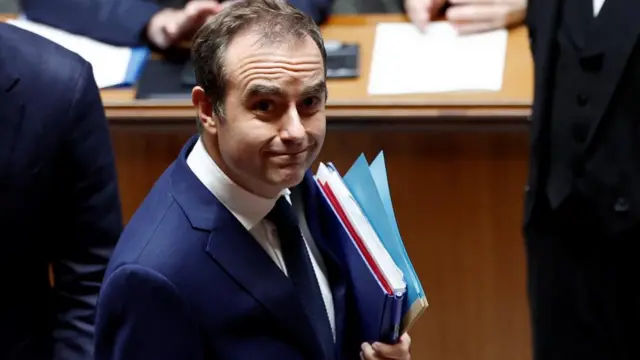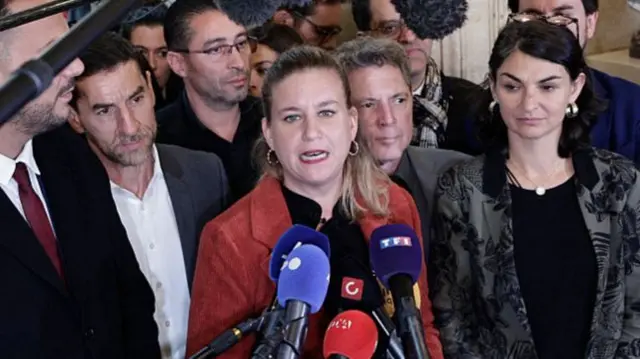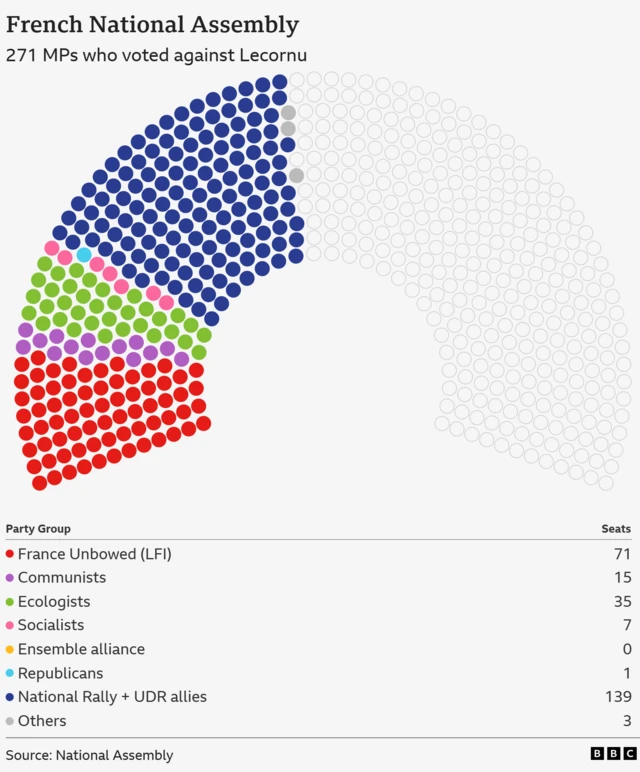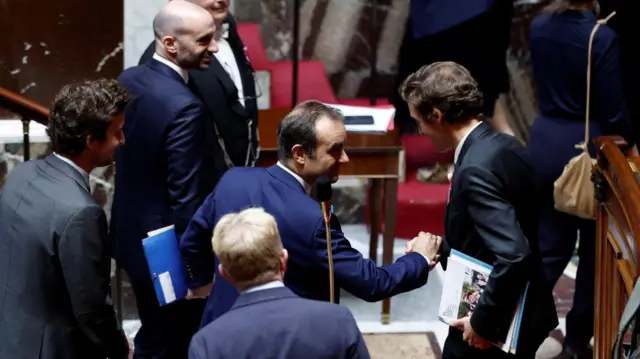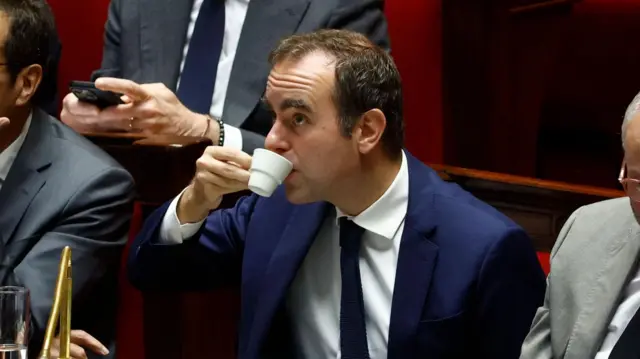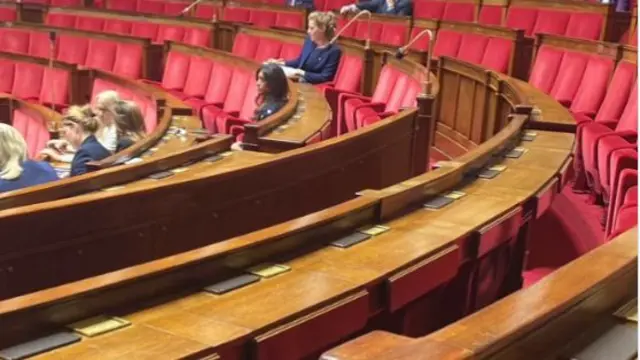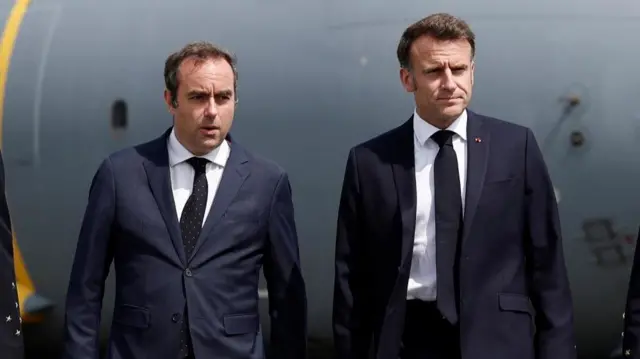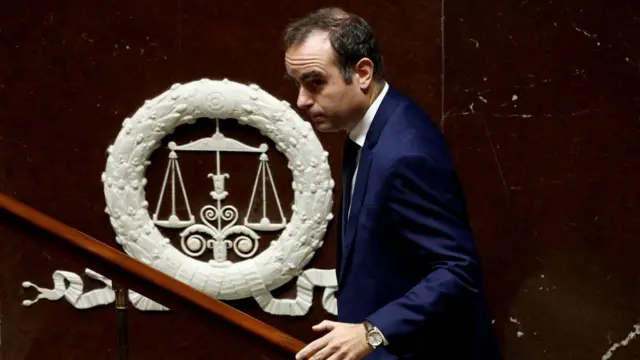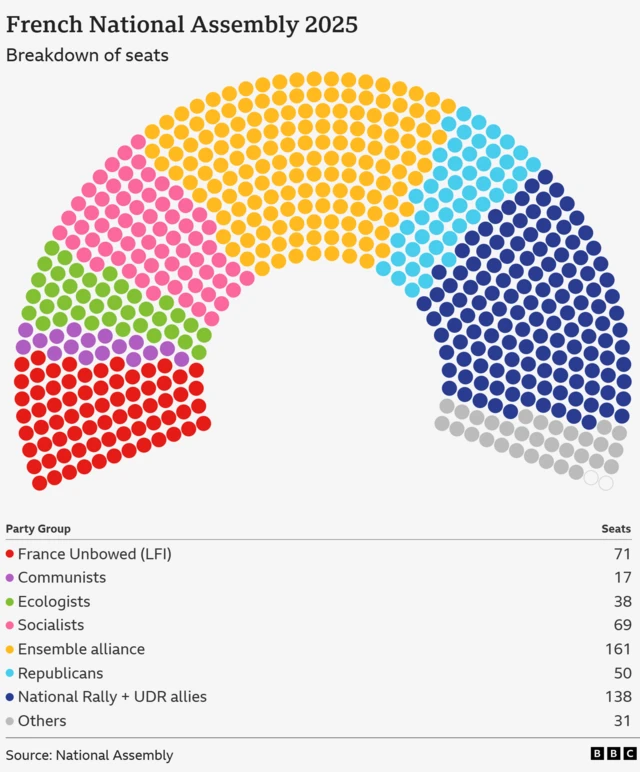Lecornu survives two no-confidence votes, but more challenges to comepublished at 12:03 BST 16 October
 Cachella Smith
Cachella Smith
Live reporter
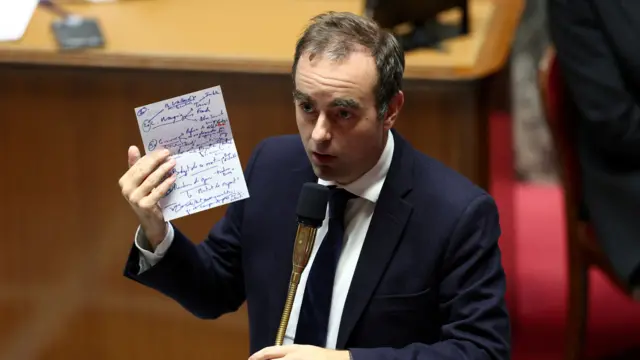 Image source, Reuters
Image source, ReutersFrench Prime Minister Sébastien Lecornu has survived two no-confidence votes after separate motions were lodged against him amid continued political turmoil in the country.
Each vote would have needed to secure 289 votes in favour in order to be passed.
The first, which followed a motion filed by the far-left party La France Insoumise, failed by a narrower margin than expected of just 18 votes.
The second, however, was never expected to succeed - with MPs considered unlikely to position themselves voting alongside Marine Le Pen's far right party.
Lecornu has survived today but his predecessors were not so lucky. Just last month, François Bayrou was ousted when he called a vote of no-confidence in himself, and before that, Michel Barnier resigned after losing a no-confidence vote in December 2024.
And Lecornu himself has his work cut out for him moving forward with a lot to achieve, not least the 2026 budget, alongside a fragmented National Assembly in which his party does not have a majority.
Our Paris correspondent Hugh Schofield writes that he will be fighting for survival - with the Socialists persuaded not to join today's censure only after Lecornu put forward suspending controversial pension reforms.
While it said it would support the government today, the party wants to overturn large parts of the prime minister's budget meaning securing a majority on that front could prove more difficult.
We're ending our live coverage but for more on the suspended pension reforms you can have a look at our previous article.
